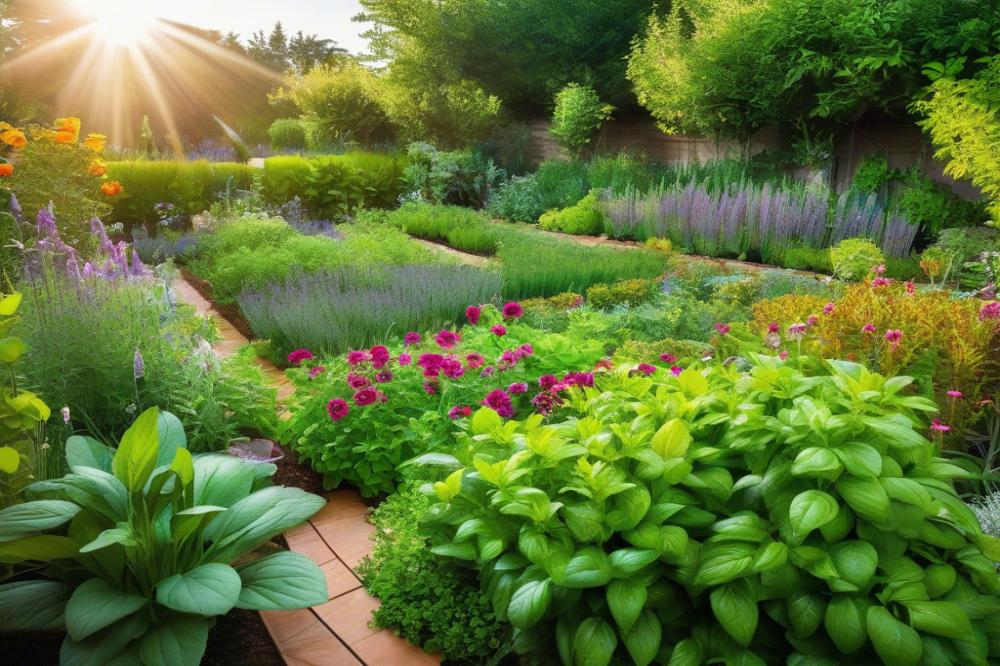The Benefits of organic herb gardening
Gardening has evolved into a beloved hobby for many people, particularly when it comes to growing herbs. organic herb gardening is gaining traction as more individuals seek to cultivate their own aromatic plants right at home. The shift towards eco-friendly practices has made sustainable gardening appealing to those wanting to contribute positively to their environment.
Home gardening offers a wonderful sense of fulfillment. Many find joy in nurturing plants from seed to harvest. Fresh herbs enhance not only meals but also our daily routines. Being able to pick a few leaves of basil or cilantro whenever a recipe calls for it is a delightful experience. Moreover, cultivating your own herbs means enjoying them without the worry of pesticides. The appeal of knowing exactly what goes into the soil is hard to ignore.
Various health benefits arise from using herbs in everyday cooking. Many herbs are packed with vitamins and antioxidants. These powerful plants can support digestion and provide various medicinal properties. Learning gardening tips and which herbs to grow can enhance your cooking and improve your overall well-being.
Culinary uses for homegrown herbs are endless. They can elevate simple dishes and add flavor without the need for additional salt or unhealthy additives. From mint in summer drinks to rosemary in roasted dishes, the possibilities are exciting. Not only is it practical to grow your own, but it also enriches your culinary experience.
As people become more aware of their food sources, it’s clear that organic herb gardening offers both joy and utility. The benefits of herb gardening extend beyond just flavor; it contributes to a healthier lifestyle, supports the environment, and encourages a mindful approach to food.
The Basics of Organic Herb Gardening
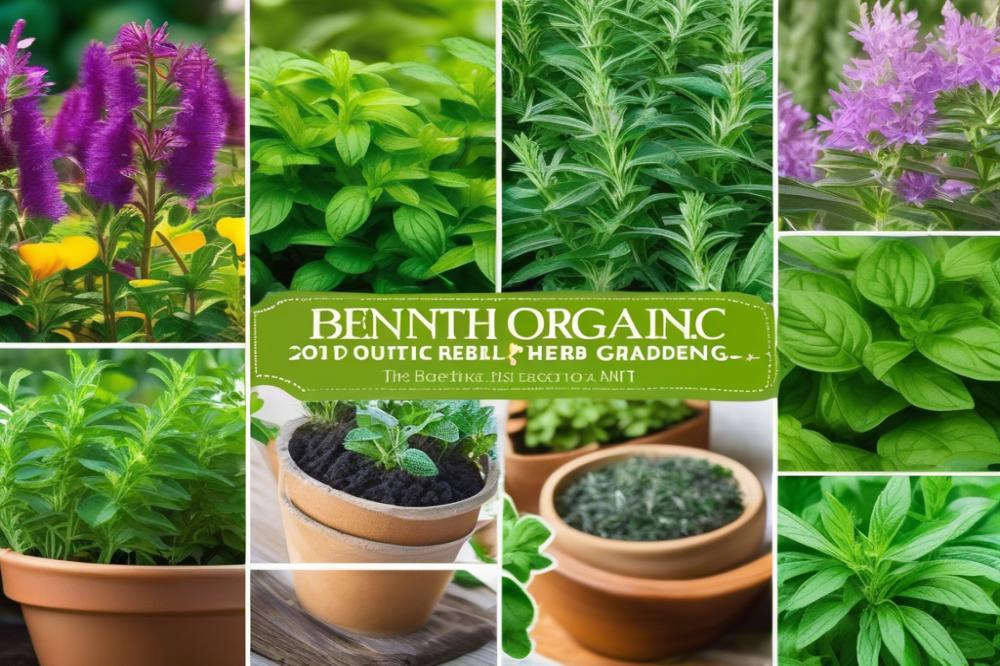

Organic herb gardening focuses on growing plants without synthetic chemicals. Its principles revolve around natural methods that promote a healthier environment. This approach emphasizes sustainability, allowing gardeners to produce fresh herbs while protecting the ecosystem. Growing herbs pesticide-free not only benefits the planet but also enhances personal health. Consuming the produce from such a garden means enjoying herbs free from harmful residues.
Choosing the right location is crucial for successful growth. Most aromatic herbs thrive in sunny spots. Look for an area that receives at least six hours of sunlight each day. Good airflow can also help prevent diseases. Soil preparation comes next. Enrich the garden bed with organic compost. This will improve nutrient content and drainage. Testing the soil pH can also guide you in making necessary adjustments, setting the stage for vibrant plants.
Selecting the right seeds or plants is essential. Consider culinary uses in your cooking when making your choices. Basil, rosemary, and cilantro are popular options for home gardening. Buying organic seeds or seedlings ensures you begin with pesticide-free stock. Local nurseries may also offer unique varieties suited to your climate. Follow gardening tips for spacing and care to maximize growth. By giving each herb enough room, you encourage healthy development and reduce competition for resources.
The journey of growing herbs can be rewarding. You’ll find joy in caring for your plants as they thrive. Connecting with nature improves well-being. With patience and dedication, your organic herb garden can yield an abundance of aromatic herbs, ready for use in your favorite dishes.
Health Benefits of Growing Fresh Herbs
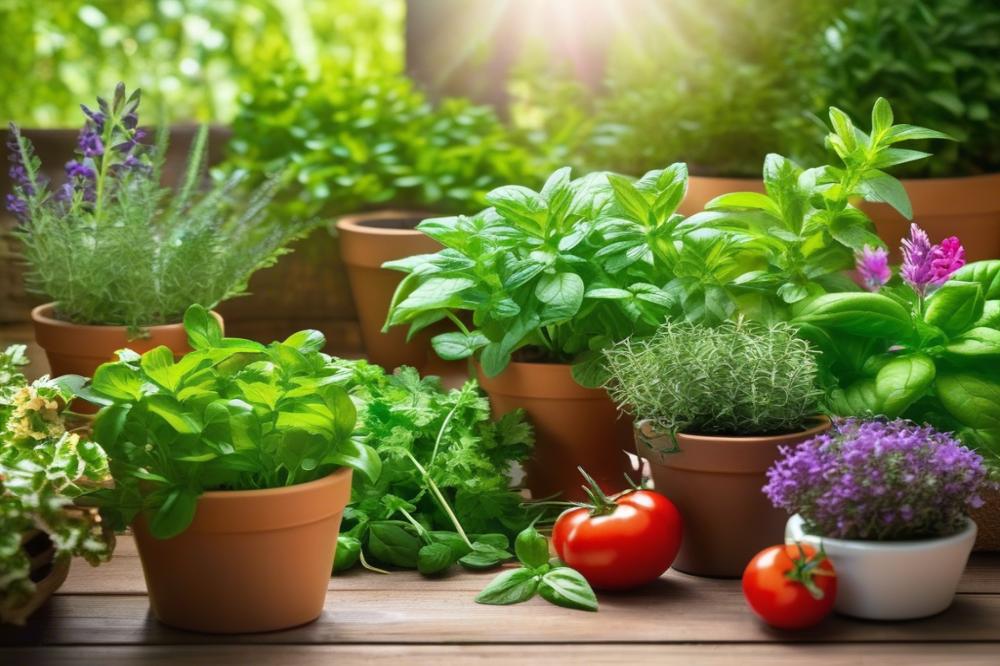

Growing fresh herbs at home provides significant nutritional advantages. Fresh herbs are packed with vitamins and minerals that can enhance overall health. For instance, basil is known for its anti-inflammatory properties, while parsley is high in vitamin K. These small plants can make a big difference in a balanced diet.
Culinary uses for these aromatic herbs extend beyond flavor. They can reduce the need for salt and sugar in cooking, which is beneficial for those watching their sodium or sugar intake. Rosemary, with its rich antioxidants, supports brain health and prevents memory loss when included regularly in meals.
Organic herb gardening offers a pesticide-free alternative to store-bought options. Home gardening allows you to grow herbs without harmful chemicals, making them a healthier choice for your meals. By choosing to cultivate these plants sustainably, you also contribute to an eco-friendly environment. It’s a win-win for health and the planet.
Simple gardening tips can guide anyone in starting their herb garden. Herbs like mint and cilantro grow well in containers, making them suitable for any space. Growing herbs not only yields fresh flavors, but it also promotes a healthy lifestyle. Enjoying a dish topped with fresh basil or dill can elevate a meal and provide you with natural nutrients.
Incorporating a variety of these plants into your diet can help you feel more energetic. Many people overlook the benefits of herbs, but they are a vital source of nutrition. As you venture into home gardening, remember the joys of harvesting your herbs. Freshness and flavor will encourage healthier eating habits too.
Culinary Uses of Organic Herbs
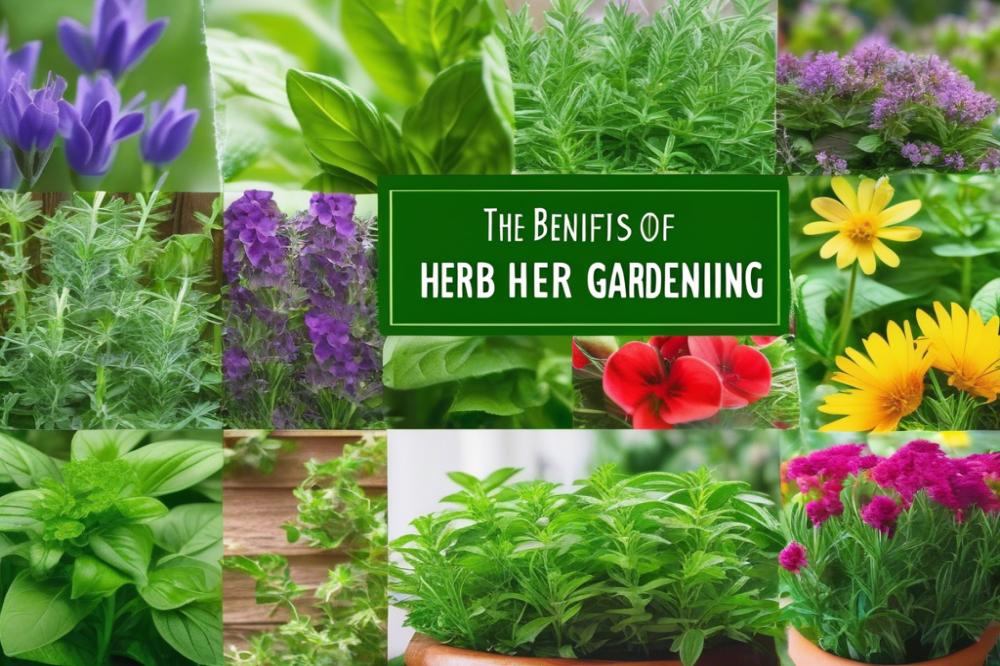

Organic herbs are a wonderful way to enhance flavors in cooking. They bring freshness and depth to dishes, offering a taste that dried herbs often lack. Many home cooks find that using aromatic herbs opens up a whole new world of flavor profiles. Each herb has its own unique set of characteristics that can transform a simple meal into something extraordinary.
Common culinary herbs like basil, parsley, and cilantro play significant roles in various cuisines. Basil, for instance, shines in Italian dishes, particularly in pasta sauces and pesto. Freshly chopped parsley adds brightness to salads and finishes off a plate beautifully. Cilantro is a staple in Mexican and Asian cooking, bringing a fresh, citrus-like flavor that complements many dishes.
Herbs also serve various purposes beyond taste. Thyme is perfect for seasoning roasted meats and vegetables, while rosemary adds a lovely, earthy aroma to potatoes or bread. The flexibility of herbs allows them to be used in marinades, dressings, and even desserts. Baking can benefit from lavender or mint, offering surprising hints of flavor that elevate sweet treats.
Preserving fresh herbs can be simple and rewarding. One effective method is drying them. Hanging bundles of herbs upside down in a cool, dry area helps retain their flavor. Another great way is freezing. Chopping herbs and placing them in ice cube trays with a little water creates handy frozen portions for later use. These techniques allow you to enjoy your home gardening results long after harvest.
Integrating herbs into everyday meals can be done in various ways. Throw some into a salad for a burst of flavor, or sprinkle on top of soups right before serving. Experimenting with herb-infused oils can also enhance your cooking. Incorporating a few aromatic herbs into sauces or marinades can make dinner feel special without a lot of extra effort.
Growing herbs at home promotes sustainable gardening practices. It also allows you to have a constant supply of pesticide-free ingredients. That means you can cook with peace of mind, knowing exactly where your food comes from. By incorporating fresh herbs, you not only elevate your dishes but also boost their health benefits, like antioxidants and essential nutrients.
Eco-Friendly Gardening Practices
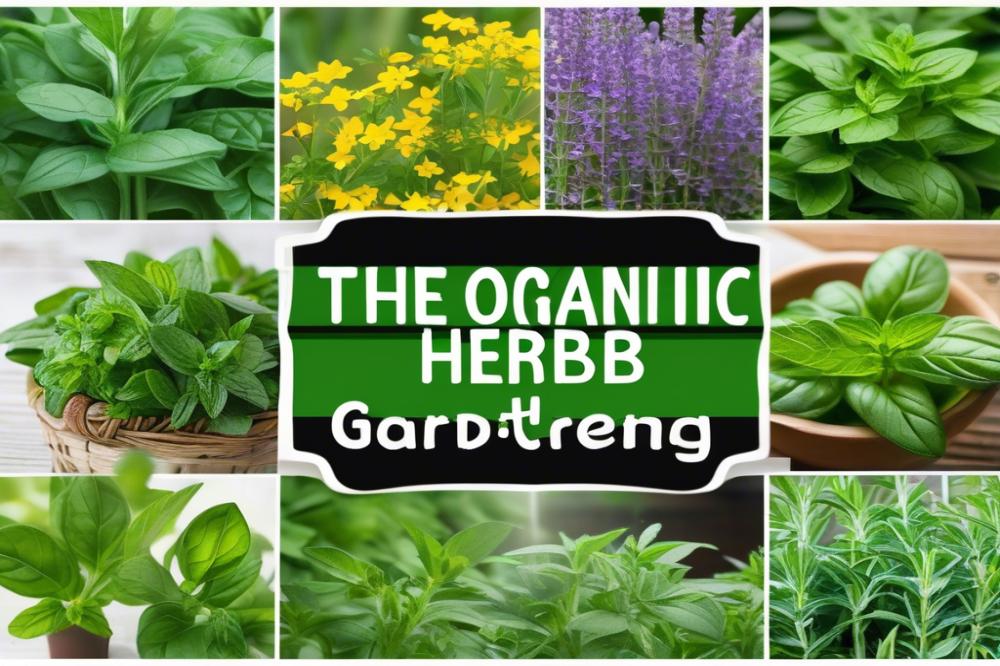

Gardening without chemicals has many environmental benefits. Organic herb gardening promotes healthier ecosystems. Sustainable gardening practices focus on nurturing the earth rather than depleting it. these methods actively reduce carbon footprints, which helps combat climate change.
Composting is a key part of this eco-friendly approach. It transforms kitchen scraps and yard waste into rich, nutritious soil. This process reduces landfill waste and provides essential nutrients for your plants. Healthy soil leads to strong plants, yielding aromatic herbs and fresh flavors for culinary uses.
Water conservation also plays a vital role in sustainable home gardening. Simple techniques, like drip irrigation or using rain barrels, minimize water usage. These methods not only lower water bills but also preserve a precious resource. Every drop counts when caring for your beautiful herb garden.
Natural pest control adds another layer to eco-friendly gardening. Instead of harmful pesticides, growing herbs like basil or mint can repel unwanted insects. This pest management approach ensures that your lovely plants thrive without negative effects on the surrounding environment. Keeping the garden pesticide-free supports the health of pollinators such as bees and butterflies.
Finally, organic practices promote biodiversity. Different herbs attract various beneficial insects and wildlife. A varied garden creates a balanced ecosystem. By planting a broad range of fresh herbs, you encourage thriving populations of helpful organisms.
Gardening Tips for Success
Starting an organic herb garden can be enjoyable and rewarding. First, consider the right location for your plants. Most herbs thrive in sunny spots that receive at least six to eight hours of sunlight each day. Without sufficient light, herbs might grow slowly or become leggy.
Water them carefully. Overwatering can suffocate roots and lead to root rot, while underwatering may cause dryness and weak growth. Check the soil frequently by sticking your finger in it. If it feels dry up to the first knuckle, it’s time to water. Aim for a consistent watering schedule.
Pest management is crucial for maintaining a healthy garden. Encourage beneficial insects like ladybugs and bees to visit your plants. You can also use natural remedies such as neem oil or insecticidal soap to combat pests without harsh chemicals. These methods help keep your herbs pesticide-free, making them safe for culinary uses.
Crop rotation promotes soil health and minimizes pest problems. Rotate your herbs every growing season. For example, if you planted basil in one area this year, try placing it elsewhere next year. This practice prevents pests from establishing a residence in your garden.
Companion planting allows you to grow different herbs together for mutual benefit. For instance, planting basil near tomatoes can improve flavor and health. Such combinations maximize growing spaces and can deter pests. Additionally, aromatic herbs like rosemary and mint can repel undesirable insects.
Choosing the right varieties is also essential for successful home gardening. Start with easy-to-grow herbs like chives, parsley, or cilantro. These plants are forgiving and can thrive even in less-than-ideal conditions. Once you gain confidence, you can try unique herbs that add a different flavor to your dishes.
Maintaining a diverse garden contributes to sustainable gardening practices. Mix various types of herbs, such as annuals and perennials, to create a vibrant environment. This approach can lead to an ecosystem that is more resilient and productive. Each herb serves a purpose, enriching both the garden and your culinary adventures.
Lastly, enjoy the health benefits of fresh herbs. They not only enhance flavors but also provide essential nutrients. Experiment with different recipes, discovering new uses for your homegrown treasures. Good luck in your journey toward a thriving herb garden!
Embrace the Benefits of Growing Herbs
Organic herb gardening offers a wealth of advantages that can enrich your life in multiple ways. For starters, growing your own herbs provides remarkable health benefits. Fresh herbs are filled with essential nutrients and antioxidants, which can boost your immune system and promote overall well-being. When you cultivate them yourself, you also avoid harmful chemicals and pesticides often found in store-bought herbs.
Culinary enjoyment is another major advantage. Freshly picked herbs can transform ordinary meals into extraordinary dishes. The vibrant flavors that homegrown herbs add to your cooking can make even the simplest recipes shine. Imagine the satisfaction of snipping fresh basil or cilantro right when you need it. The aroma and taste are incomparable to anything purchased at a grocery store.
Moreover, engaging in sustainable gardening practices is incredibly rewarding. By growing your own herbs, you reduce your carbon footprint and minimize waste. Each plant contributes to a healthier environment, making your gardening experience a meaningful choice for the planet. Sustainable practices foster a deeper connection with nature and help create a more balanced ecosystem.
Deciding to start your herb garden is not just an investment in your kitchen; it’s a commitment to a healthier lifestyle. Whether you have a backyard or a small balcony, there’s always space for a few pots. Herbs are easy to grow, and you don’t need extensive gardening skills to succeed.
Consider embarking on this green journey today. Explore the flavors and benefits that come with growing your own herbs. Your taste buds and health will thank you, and the environment will benefit too. There’s no time like the present to nurture your own little piece of nature.

